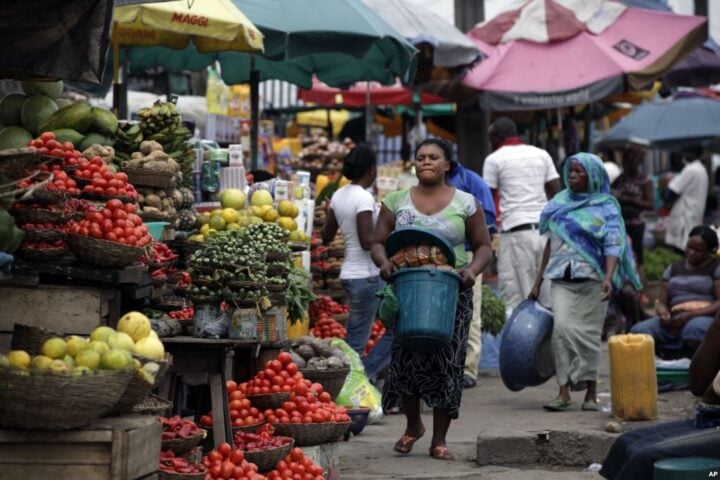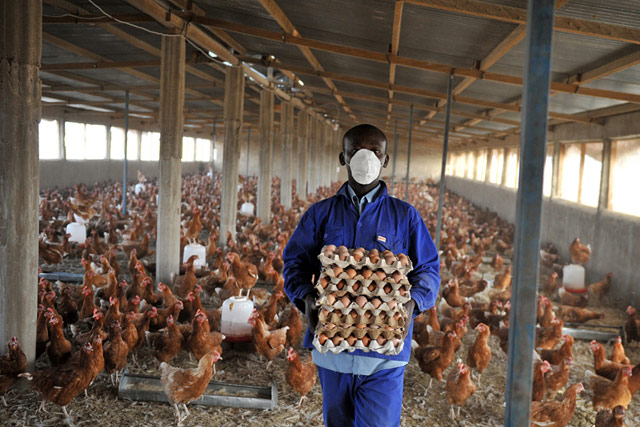The consumer price index (CPI), which measures the rate of change in prices of goods and services, declined for the sixth consecutive time to 16.63 percent in September from 17.01 recorded in August.
On a month-on-month basis, the headline index increased by 1.15 percent in September 2021, this is a 0.13 percent rate higher than the rate recorded in August 2021 (1.02) percent.
This implies that prices continued to rise in September 2021 — but at a slower pace than the previous month.
Here are some key highlights from the inflation figures:
Advertisement
INCREASES RECORDED IN PRICE OF BREAD, FISH, YAM
According to NBS, the composite food index rose by 19.57 percent in September 2021 compared to 20.30 percent in August 2021.
The rise in the food index was caused by increases in prices of oils and fats, bread and cereals, food product, fish, coffee, tea and cocoa, potatoes, yam and other tuber and milk, cheese and egg.
Advertisement
On a month-on-month basis, the food sub-index increased by 1.26 percent in September 2021, up by 0.20 percent points from 1.06 percent recorded in August 2021.
“The average annual rate of change of the food sub-index for the twelve-month period ending September 2021 over the previous twelve-month average was 20.71 percent, 0.21 percent points from the average annual rate of change recorded in August 2021 (20.50) percent,” the report stated.
RESIDENTS OF KOGI, OYO AND GOMBE SPENT MORE ON FOOD
Food Inflation on a year-on-year basis was highest in Kogi (26.63 percent), Oyo (22.40 percent) and Gombe (22.16 percent), while Bauchi (16.35 percent), Yobe (16.33 percent) and River (15.97 percent) recorded the slowest rise in year-on-year.
Advertisement
On a month-on-month basis, food inflation was highest in Kaduna (2.22 percent), Kano (2.17 percent) and Anambra (2.15 percent). Benue (0.23 percent) and Kebbi (0.09 percent) recorded the slowest rise, with Zamfara recording price deflation or negative inflation (general decrease in the general price level of food or a negative Food Inflation rate).
PRICES OF GAS, HOUSEHOLD APPLIANCES INCREASED
The “All items less farm produce” or Core inflation, which excludes the prices of volatile agricultural produce, stood at 13.74 percent in September 2021, up by 0.33 percent when compared with 13.41 percent recorded in August 2021.
On a month-on-month basis, the core sub-index increased by 1.24 percent in September 2021. This was up by 0.47 percent when compared with 0.77 percent recorded in August 2021.
Advertisement
According to the NBS, the highest increases were recorded in prices of gas, household textile, garments, motor car, major household appliances whether electric or not, passenger transport by air, hospital services, other services in respect to personal transport equipment, wine, clothing materials, other articles of clothing and clothing accessories, non-durable household goods.
INFLATION RATE STILL ABOVE CBN’s TARGET
Advertisement
The food index, which accounts for the bulk of the inflation basket, showed prices rose by 19.57 percent in September 2021 compared to 20.30 percent in August 2021.
Food inflation has been worsened by incessant clashes between farmers and herders, which have impeded supply.
Advertisement
Presently, Nigeria’s inflation figure has been above the apex bank’s single-digit band target (6 percent to 9 percent) for more than five years.
Last month, Hassan Mahmud, director of monetary policy department, CBN, said the country’s inflation rate may drop to 13 percent this year and single-digit by 2022.
Advertisement
He said if policy challenges with exchange rates, insecurity, among others, were addressed effectively, the country would start seeing some positive projections in 2021 and the beginning of 2022.
Add a comment







